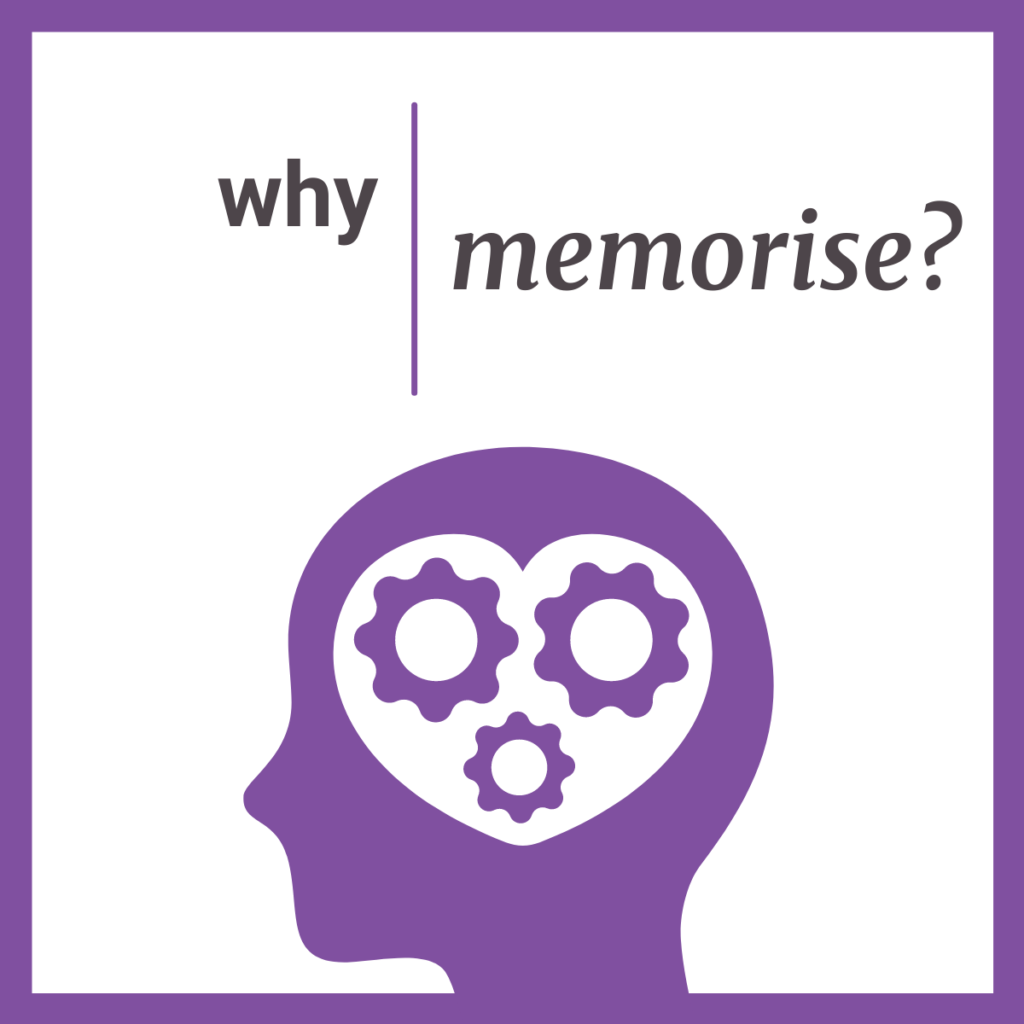Why Memorise in Practice?
Everything you need to strengthen your musicianship skills

An important aspect of the musicianship work you are doing is memorisation.
This is where you memorise a specific concept or element (e.g. scales or chords etc.) or activity (e.g. a melody or rhythm etc).
The obvious reason for doing this is so that the information is there, in your brain, when you need it in a class or an exam situation, without you having to find the page in the book or the video of Deb performing it. However, memorising something also allows you to truly practice it using all the great ideas available to you. (See Ways to Practice for some of these).
The act of memorising means you’re more likely to actually Know the information, which frees up brain power to continue learning new material. Memorisation upgrades your memory capacity and duration.
Benefits
- by memorising, you’re storing the information away for use later, but importantly, you’re also contextualising it
- by memorising, you’re training your brain for the addition of future concepts and learning – that sort of exercise is key
- memorisation is a really great progress tracker for your understanding – it’s not just about rote recall, it’s the fact that you’re popping this stuff in your long-term memory
- aside from the brain boost you get from actively memorising generally, it’s also useful as a musician when applying it practically
- memorisation is a natural form of extension when building your musicianship – this challenges you, hastens your progress and allows you to really practice something
- memorisation is just another way for you to learn!
Important note:
Our working memory capacity is limited to roughly seven pieces of information at a time – might feel even less when exams roll around! – so in order to gather, store, sort, manipulate and retrieve stuff when we need it, we have to repeat and repeat and repeat!
Read on for more….
Prior to the immediate access to information we have today, people had to memorise large amounts of detail, which they did successfully. This meant they were able to build on the knowledge they gathered in order to understand and apply in their contexts.
Nowadays, despite the wealth of data at our fingertips (or scrolling thumbs!) we actually know even less than our ancient counterparts. We don’t do the memory work needed to properly store things we consume in our long-term memory. Just like anything, it’s a skill to be practiced.
Andrew Ingkavet believes that learning a musical instrument builds skills vital to success in life. As a musician I’m sure you’d agree! He says:
“We need to get to the very heart of emotion in the music, and the only way is to memorise, internalise, and interpret as our own. To know the music fully”.

